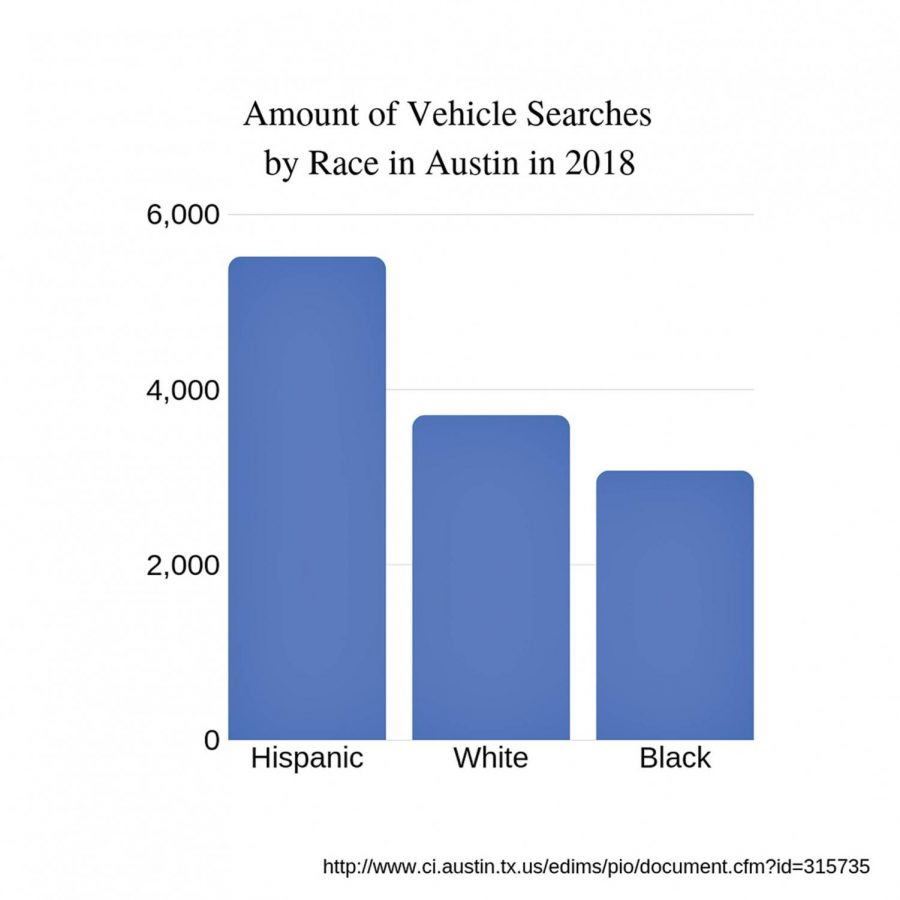APD releases report detailing racial breakdown of traffic stops, vehicle searches
Traffic stops in Austin are broken down by race, according to information provided by the Austin Police Department. Police Commissioner Manley insists that police officers do not initially know the race of the person being pulled over.
A recent article in the Austin American-Statesman revealed that Hispanic people are the most likely of any race to be searched in traffic stops in Austin. The data comes from the 2018 Racial Profiling Report produced yearly by the Austin Police Department.
The racial profiling report is comprised of data from motor vehicle stops, searches, and search results.
All of these are categorized by year, race and ethnicity.
APD made 122,185 stops in 2018, and searched 12,554 people from those stops.
Out of those, 5,514 of those searched were Hispanic, 3,704 were white, and 3,072 were black.
Brian Manley, APD’s Chief of Police, says that there is a misconception that police officers know the race of the person they’re stopping in traffic stops.
He says that one important factor to look out for in the report is the hit rate, which is the percentage of time that contraband or other incriminating items are found on those searched in traffic stops.
“Between three predominant ethnicities, [whites, blacks, and Hispanics], the hit rate was almost identical,” Manley said.
The report also includes formal and informal racial profiling complaints made against UPD during the year.
The Office of the Police Monitor is responsible for taking these complaints.
In 2018, the office did not take complaints for the majority of the year because the city did not renew their contract with the office.
The contract, called the Meet and Confer agreement, expired in Jan. 2018 and was not renewed until Nov. 2018.
Manley said that despite this, citizens are always able to make racial profiling complaints directly to APD.
In 2017, the Office of the Police Monitor received 10 formal complaints and 60 informal complaints.
In 2018, they received 4 formal and 9 informal complaints.
According to Manley, APD works with Alex del Carmen, a state expert on racial profiling and crime analysis, to produce the report.
Carmen thinks racial profiling data is important to analyze to ensure there isn’t a problem with racial profiling within police departments.
Carmen said that Austin Police officers are evaluated by their supervisors and random reviews are conducted by the Office of Police Oversight to ensure officers are not targeting people in traffic stops based on their race.
Junior computer science major Elliot Flores says that racial profiling has been a constant problem that hasn’t been “completely fixed.”
“I think it’s more of an endemic problem all around the country,” Flores said.






